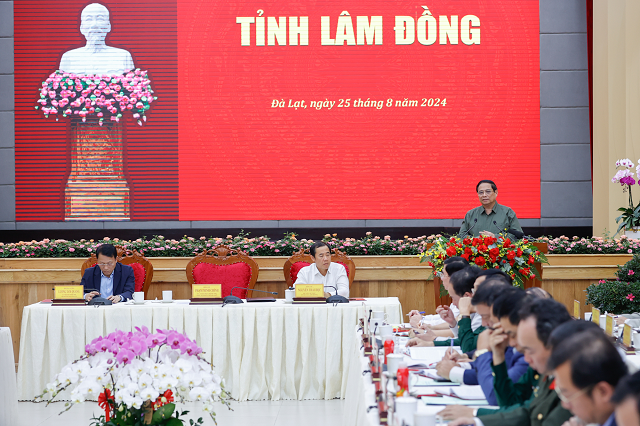On May 20, the National Assembly discussed amendments to the Enterprise Law in a plenary session. According to the Government’s proposal, these changes aim to meet international requirements and keep up with new developments in economic promotion.
A proposal outside the scope of the law
Deputy Phan Đức Hiếu from Thái Bình province put forward three opinions, notably a suggestion regarding the age limit for contributing capital to establish a business.
According to Deputy Hiếu, the current Enterprise Law only allows individuals aged 18 and above to contribute capital to set up a business. However, he proposed lowering this age limit to allow 16-year-olds to participate in capital contribution for business establishment.
Deputy Hiếu explained, “According to the current legal system, a child is defined as an individual under 16 years of age, and a 15-year-old is considered employable. While individuals under 18 years old do not possess full civil act capacity, those aged 15 and above are allowed to enter into and be accountable for civil transactions. Therefore, allowing 16-year-olds the right to contribute capital and participate in business establishment aligns with the provisions of the current law.”
 Deputies Phan Đức Hiếu (left) and Đồng Ngọc Ba (right) have differing opinions on the age limit for business establishment. Photo: QH |
Subsequently, Deputy Đồng Ngọc Ba from Bình Định province expressed a different viewpoint. He stated that Article 17, Clause 2 of the current Enterprise Law clearly distinguishes the rights of establishment, management, and capital contribution among different entities. According to him, the law has long not prohibited capital contribution to businesses, and anyone with assets is allowed to contribute capital.
Certain individuals are prohibited from establishing, participating in, or contributing capital to businesses to avoid conflicts of interest. These include civil servants, public employees, and armed forces, as stipulated in laws such as the Law on Civil Servants and the Law on Prevention of Corruption.
“The provision regarding the right to contribute capital to businesses aims to attract all resources for development. Perhaps, Deputy Phan Đức Hiếu’s suggestion is about granting 16-year-olds the right to participate in business establishment. I propose that we carefully consider this matter,” said Deputy Đồng Ngọc Ba. He further noted that if a minor is involved in a business that engages in multiple transactions, it warrants careful consideration.
In a follow-up discussion, Deputy Phan Đức Hiếu argued that adopting his proposed reduction in the age limit for business establishment would positively impact youth career guidance. It would increase entrepreneurial opportunities and foster a societal spirit of business, significantly contributing to the implementation of Resolution 68 and other National Assembly and Government resolutions on the private sector.
Protecting the image of teachers
Regarding the participation in establishing or managing businesses, several National Assembly deputies suggested expanding the regulations to allow functionaries in certain fields to establish or manage businesses.
Deputy Trần Thị Nhị Hà from Hanoi appreciated that the draft law expanded the rights of functionaries in public higher education institutions to contribute capital, manage, and operate businesses to commercialize research results.
However, she pointed out a contradiction with Article 49 of the draft Law on Science, Technology, and Innovation, also submitted at this session. This draft law provides broader coverage, including functionaries in all public science and technology organizations.
“This creates inconsistency in the legal system. It is important to note that not all public higher education institutions are science and technology organizations, and vice versa,” said Deputy Hà. She proposed amending the Enterprise Law to align with the draft Law on Science, Technology, and Innovation to avoid inconsistencies and ensure a clear legal framework that facilitates innovation in the public sector.
Deputy Tạ Văn Hạ from Quảng Nam province analyzed the difference between commercial and non-commercial legal entities and expressed concern about teachers acting as both educators and business owners. He stated, “Teaching is a noble profession, and teachers are special functionaries. If we expand the scope of commercial legal entities in this manner, teachers will be subject to criminal liability for offenses such as tax evasion, fraud, non-compliance with insurance regulations, environmental violations, or ineffective capital mobilization, which are very real possibilities.”
Deputy Hạ also drew attention to some stark lessons from the past, where the establishment of businesses by public service units proved to be inefficient, leaving a heavy burden on the managing authorities.
“I suggest that we maintain the regulations outlined in the Law on Teachers. Educational functionaries should only be allowed to establish, manage, and operate educational institutions in the fields of education, science, and technology. When it comes to commercial activities, there should be a transfer of ownership. We need to carefully consider the establishment of commercial legal entities to protect the image of teachers,” concluded Deputy Tạ Văn Hạ.
REPORTERS
– 12:50 20/05/2025
“Legislators Propose Expanding Eligibility for Civil Servants to Participate in Business Management”
The parliamentary delegates proposed that the draft Enterprise Law should expand the scope of eligible civil servants permitted to manage enterprises. Instead of limiting this privilege to public universities, as is currently the case, this expansion would serve to actualize Resolution 57 and foster widespread innovation and creativity.




















